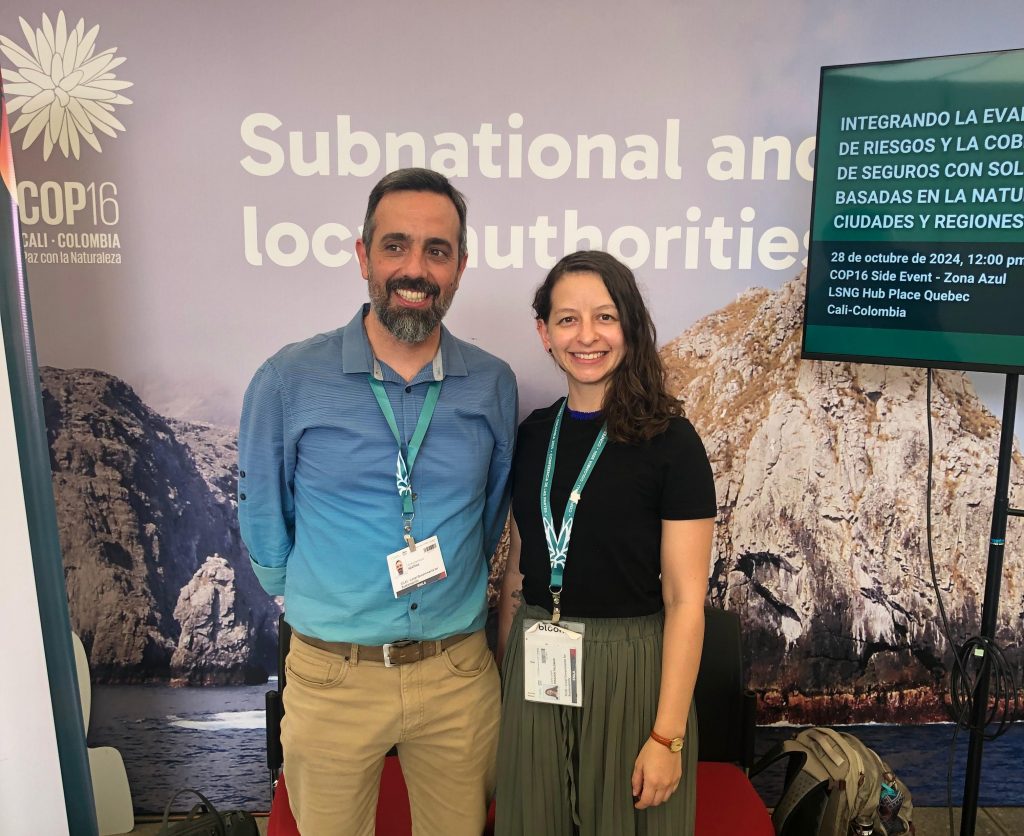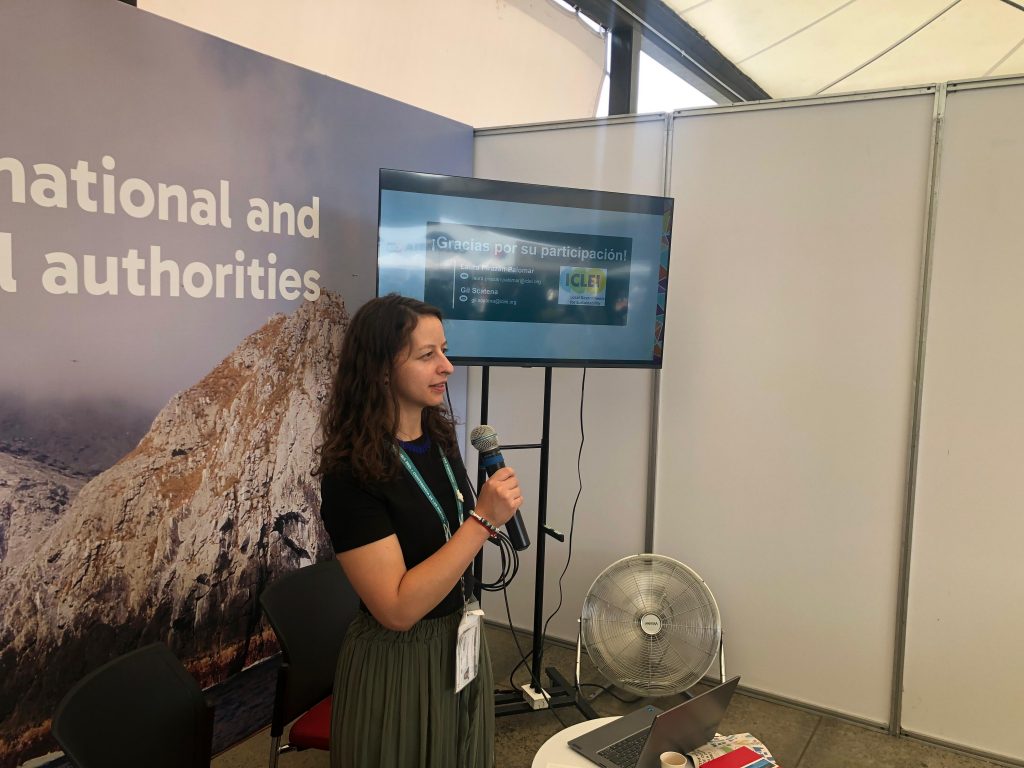Article by Laura Pirazán-Palomar (ICLEI)
On October 28, 2024, during COP16 in Cali, Colombia, the session “Integrating Risk Assessment and Insurance Coverage with Nature-Based Solutions for Cities and Regions” brought together experts and leaders to explore innovative approaches to urban resilience. The session focused on how cities can enhance their capacity to withstand climate challenges by integrating nature-based solutions (NBS) with
forward-thinking insurance mechanisms. Hosted in the Blue Zone’s LSNG Hub at Place Quebec, the session took the form of a workshop and was organized in collaboration with the NATURANCE project and Urban Infrastructure Insurance Facility (UIIF).
The event opened with remarks from Laura Pirazán-Palomar, resilience and climate adaptation expert from ICLEI Europe and NATURANCE Champion Network. In her introduction, Laura highlighted the urgency of interdisciplinary collaboration to address the multifaceted climate challenges facing urban areas. She presented the NATURANCE Network of Knowledge Networks, a groundbreaking initiative designed to bridge sectors including nature-based solutions, sustainable investments, risk assessments, and local government actions. By fostering connections across disciplines and geographies, this network provides a platform for knowledge exchange that informs policy development and practical applications. Laura also emphasized how the NATURANCE Network aligns with global frameworks such as the European Green Deal, the Kunming-Montreal Global Biodiversity Framework, and the UN’s 2030 Agenda. The network, she noted, plays a vital role in addressing knowledge gaps, while its Innovation Labs foster collaboration among experts, entrepreneurs, and policymakers to develop and test innovative solutions for resilience and sustainability.

Adding a regional dimension, Gil Scatena, Technical Director of ICLEI Brasil, showcased the work of the Urban Infrastructure Insurance Facility (UIIF). He explained how the initiative conducts risk assessments across ten cities in Latin America and the Caribbean, tailoring insurance products to local needs. The UIIF also plays a pivotal role in disaster risk management by bolstering cities’ financial resilience, ensuring the swift reconstruction of critical infrastructure, and providing targeted assistance to vulnerable populations. Gil’s presentation underscored the transformative potential of combining risk reduction measures with innovative insurance mechanisms to address the escalating threats posed by climate change.
An interactive discussion followed, inviting participants to share perspectives and explore strategies for integrating NBS with insurance mechanisms in their own contexts. Several key themes emerged from the dialogue. First, the importance of conducting detailed risk assessments was underscored, particularly to identify critical natural assets and the ecosystem services they provide. Participants agreed that preserving these natural areas is essential for disaster risk reduction. Another significant insight was the necessity of protecting key infrastructure, such as hospitals, water treatment plants, and schools, which serve vital roles during emergencies. This highlighted the need for local governments to link such assets to broader resilience strategies.
The discussion also emphasized the critical importance of fostering collaboration among local governments, private sector stakeholders, and the scientific community. Participants noted that such partnerships could bridge the gap between policy and practice, ultimately leading to more effective disaster risk management.
Additionally, the group identified a lack of awareness and stakeholder engagement in some communities regarding the risks posed by disasters and the benefits of integrating NbS into resilience adaptation planning. The session also addressed the limited culture of insurance in some Latin American regions, where such initiatives as UIIF and the NATURANCE Network can play an important role in raising awareness and building a culture of preparedness and resilience.
The session concluded with a reflection on the role of financial tools and insurance products in safeguarding both urban populations and natural ecosystems. Participants emphasized the need for region-specific approaches that consider unique vulnerabilities, hazards, and risks, while also addressing gaps in stakeholder awareness and engagement. They also recognized the importance of introducing financial mechanisms to protect nature as part of an integrated disaster risk management framework. Furthermore, the lack of insurance uptake in certain areas was highlighted as a challenge requiring urgent attention.
By providing a platform for knowledge exchange and cross-sector collaboration, the session reaffirmed the importance of connecting science, policy, and practice in the pursuit of a more sustainable future. The insights gained during this event will inform ongoing efforts in Europe and Latin America, helping to bridge continents and disciplines in the shared fight against climate risks. Ultimately, the session underscored the transformative potential of integrating nature-based solutions with innovative financial mechanisms to create resilient urban systems capable of withstanding the escalating threats posed by climate change.

